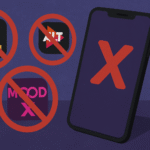If there’s one part of the world where drama never takes a nap, it’s the Middle East. And the latest chapter in this never-ending saga is raising not just eyebrows but global anxiety levels too. Iran, with a new president at the helm, Masoud Pezeshkian, is dropping thunderbolts. He recently made it clear: Iran is ready for war with Israel and will not stop its nuclear program. Whoa, that’s not just a news byte—it’s a geopolitical jolt.
- 🎯 Iran Israel: Why the Rivalry Exists in the First Place
- 🔥 What Exactly Did Iran Say?
- ⚛️ What’s the Deal With Iran’s Nuclear Program?
- 🛩️ Who’s Got What? (Spoiler: It’s Scary)
- 🧭 Where Do the Neighbours Stand?
- 📉 What Could Happen Next?
- 🧠 Why Should You Care Sitting Miles Away?
- 🕊️ Is There Any Hope?
- ✍️ Final Thoughts: When Power Meets Provocation
So, what’s the big deal? Why does the “Iran Israel” tension make everyone sit up and take notice? And is World War III now accepting pre-bookings?
Let’s break this down with facts, wit, and a tiny pinch of panic (just to stay awake).
🎯 Iran Israel: Why the Rivalry Exists in the First Place
Before we dive into the nuclear fog, let’s go back to the source of the smoke.
Iran and Israel were once… well, not besties, but certainly not this hostile. But after the 1979 Islamic Revolution, Iran transformed from a monarchy into a theocratic republic. And part of this new identity included seeing Israel as the ultimate “enemy state.”
Since then, it’s been a soap opera of assassinations, cyber-attacks, shadow wars in Syria, and verbal jabs that sting more than lemon on a paper cut.
But now, with Iran’s new president making such bold claims, things are no longer whispers in the corridor. They’re loudspeaker announcements with nukes in the background.
🔥 What Exactly Did Iran Say?
Masoud Pezeshkian, newly elected but not shy, said two things that made the world collectively drop its tea:
- Iran is prepared for a direct war with Israel.
- Iran’s nuclear program will not be stopped.
That’s like yelling “Fire!” in a theatre full of missiles.
His statement isn’t just an opinion; it’s a signal. A very public one. And coming at a time when the region is already juggling tensions in Gaza, Syria, Lebanon, and the Red Sea—it feels like lighting a match near a petrol tanker.
⚛️ What’s the Deal With Iran’s Nuclear Program?
Iran says it’s all peaceful. Just clean energy, medical research, and science-y stuff.
But let’s be real. The world has watched Iran enrich uranium beyond agreed levels. That’s like telling your neighbor you’re baking cupcakes while stockpiling TNT in your kitchen.
Israel, on the other hand, believes Iran is walking straight toward nuclear weapon development. And if there’s one thing Israel doesn’t do, it’s wait for the storm. They prefer preemptive strikes—a strategy they’ve used before in Syria and Iraq.
So if Iran really pushes forward with nuclear ambitions, and Israel feels cornered, what happens next?
Yep. Boom.
🛩️ Who’s Got What? (Spoiler: It’s Scary)
Let’s look at the arsenal on both sides.
Iran
- A powerful missile program
- Regional allies like Hezbollah in Lebanon, Houthis in Yemen, and militias in Iraq and Syria
- Expanding uranium stockpiles
- Large conventional military
- Strategic geography
Israel
- Advanced missile defense systems (Iron Dome, Arrow, David’s Sling)
- Cyberwarfare capabilities that could make Hollywood jealous
- Undisclosed nuclear weapons (wink wink, nudge nudge)
- Strong global alliances, especially with the U.S.
In short, both have teeth. And if they bite, it’s not just each other who’ll bleed—global markets, oil routes, and world peace might end up with scars too.
🧭 Where Do the Neighbours Stand?
The region isn’t watching from the sidelines; it’s watching from inside the blast radius.
- Saudi Arabia: Trying to juggle diplomacy with both nations. Wants peace but prepares for fallout.
- UAE: Cautiously optimistic but oil-export worried.
- Syria and Lebanon: Too involved for comfort. Iran’s proxy presence here could drag them directly into the fire.
- USA: Urging calm, but also sliding aircraft carriers into nearby waters “just in case.”
In other words, the Middle East is like a crowded restaurant with a kitchen fire—everyone knows, but they’re still sipping their soup hoping it doesn’t reach their table.
📉 What Could Happen Next?
There are three likely scenarios:
1. The Poker Game:
Iran and Israel keep flexing, showing off power, but no actual punches thrown. Cold war vibes, high tension, low destruction.
2. The Proxy War:
Instead of direct conflict, Iran activates Hezbollah, Hamas, or Houthis. Israel retaliates with precision strikes. Damage contained but intense.
3. The Real Deal:
Direct confrontation. Missiles fly. Bombs drop. Global headlines scream “CRISIS.” Oil prices skyrocket. World leaders lose sleep.
Of course, the hope is that logic prevails. But history teaches us—logic sometimes takes a vacation during ego battles.
🧠 Why Should You Care Sitting Miles Away?
You may not live in Tel Aviv or Tehran, but you will feel the aftershocks:
- Fuel prices could go berserk. A major chunk of global oil flows through this region.
- Stock markets will get jittery. Investors hate conflict more than rainy Mondays.
- Geopolitical alliances might shift. Countries may be forced to take sides.
- Nuclear tension isn’t local—it’s global. One mistake can set a very dangerous precedent.
In short, even if you’re thousands of kilometers away, you might still be footing the bill for this face-off.
🕊️ Is There Any Hope?
Surprisingly, yes.
Diplomacy still has a seat at the table. International pressure is high. And both Iran and Israel know one thing—nuclear war is a game where nobody wins.
Peace may not be served on a golden platter, but even delay in aggression is a small victory.
Also, world powers like China and Russia (with vested interests) could step in to cool heads. Not for charity, of course, but because chaos doesn’t pay in trade.
✍️ Final Thoughts: When Power Meets Provocation
The Iran Israel standoff has always been complicated. With bold new statements from Iran’s leadership, the story gets spicier—dangerously so.
So, whether you’re a policy buff, a concerned global citizen, or just someone who loves tracking geopolitical drama, this is one saga you can’t ignore.
Keep an eye on it. Because when Iran says “we’re ready” and Israel says “we’re watching,” history could very well be in the making. Or breaking.
And remember—peace isn’t just about treaties. It’s about choices.
Let’s hope they choose wisely.












